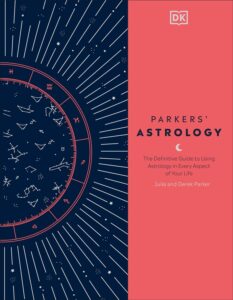Jupiter, the largest planet in our solar system, casts a magnanimous and expansive astrological influence. Often referred to as the “King of the Gods,” its majestic presence and celestial grandeur have long captured the imagination of astrologers and stargazers alike.

Named after the Roman god of the sky and thunder, Jupiter’s astrological symbolism is closely tied to its namesake’s associations with growth, abundance, optimism, and philosophy. It is considered a masculine, expansive, and benevolent planet, embodying the qualities of generosity, wisdom, and the pursuit of knowledge and spiritual enlightenment.
Rulership
♐︎+♓︎
In the celestial realm of astrology, Jupiter holds dominion over the zodiac sign of Sagittarius, and co-ruler of Pisces. As the ruling planet of Sagittarius, Jupiter lends its optimistic, adventurous, and philosophical qualities to those born under this zodiac sign, inspiring a thirst for knowledge, exploration, and a broad-minded worldview.
Aspects and Interpretations
☌ Jupiter in Conjunction with Other Planets: This aspect can indicate opportunities for growth, abundance, and optimism in areas related to the planet involved, as well as the potential for overindulgence or excessive enthusiasm.
△ Jupiter in Trine or Sextile Aspect: These harmonious aspects suggest a smooth flow of positive energy, facilitating growth, abundance, and the realization of aspirations, coupled with a sense of optimism and philosophical exploration.
☐ Jupiter in Square or Opposition Aspect: These challenging aspects can indicate struggles with moderation, overconfidence, or a tendency towards excess, requiring the development of self-discipline and a balanced approach to achieve growth and success.
Areas of Influence
Jupiter governs various spheres of life, leaving its expansive mark on the following domains:
Growth and Abundance: Jupiter represents the desire for growth, expansion, and the accumulation of wealth, resources, and knowledge, influencing our ability to seize opportunities and cultivate abundance in all aspects of life.
Optimism and Positivity: This planet is associated with an optimistic outlook, positive attitudes, and the ability to find meaning and purpose, shaping our approach to life’s challenges and our capacity for hope and faith.
Philosophy and Higher Education: Jupiter symbolizes the pursuit of higher knowledge, philosophical exploration, and the quest for spiritual enlightenment, inspiring a thirst for wisdom and a broad understanding of the world around us.
Travel and Adventure: When expressed positively, Jupiter can foster a love for travel, adventure, and the exploration of new horizons, broadening our perspectives and enriching our life experiences.
Ethics and Morality: Jupiter also influences our sense of ethics, moral principles, and the desire to live in accordance with higher ideals, shaping our personal philosophies and approach to life’s bigger questions.
Jupiter in Natal Charts
In an individual’s natal chart (the astrological chart calculated at the moment of birth), the placement of Jupiter can reveal profound insights about their capacity for growth, optimism, and the pursuit of knowledge and spiritual enlightenment. The sign, house position, and aspects of Jupiter can influence an individual’s philosophical leanings, sense of ethics, and the way they approach opportunities for expansion and personal development.

Jupiter is an astrological force that symbolizes our innate desire for growth, abundance, and the exploration of life’s profound mysteries. By understanding the influence of Jupiter in astrology, individuals can gain valuable insights into their capacity for optimism, philosophical pursuits, and the cultivation of a rich, expansive life journey.
Hey there! We hope you love our fitness programs and the products we recommend. Just so you know, Symku Blog is reader-supported. When you buy through links on our site, we may earn an affiliate commission at no extra cost to you. It helps us keep the lights on. Thanks.
Disclaimer: The information provided in this discussion is for general informational and educational purposes only. It is not intended as medical or professional advice. Only a qualified health professional can determine what practices are suitable for your individual needs and abilities.

